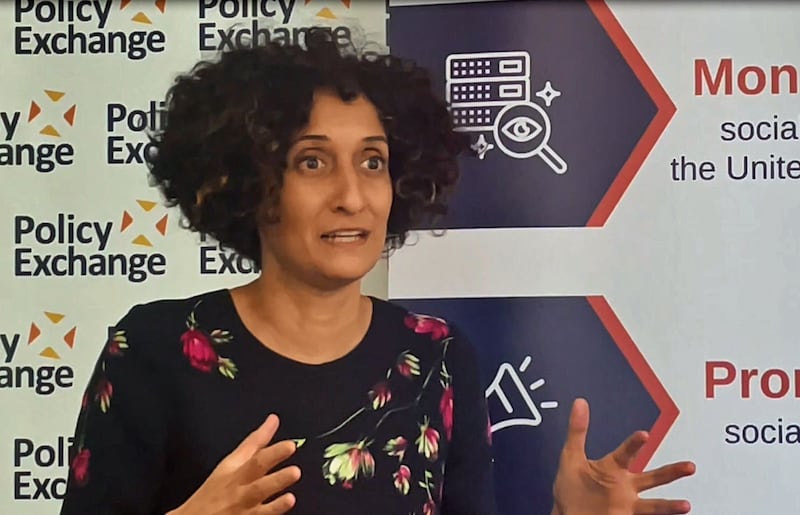A Muslim pupil has lost a High Court challenge against a ban on prayer rituals at a high-achieving north London school previously dubbed Britain’s strictest.
The student, who cannot be named, took legal action against Michaela Community School in Brent, claiming the policy was discriminatory and “uniquely” affected her faith due to its ritualised nature.
She argued the school’s stance on prayer – one of the five pillars of Islam – unlawfully breached her right to religious freedom and was “the kind of discrimination which makes religious minorities feel alienated from society”.
The school, founded and led by headteacher Katharine Birbalsingh, a former government social mobility tsar, argued its prayer policy was justified after it faced death and bomb threats linked to religious observance on site.
In a written ruling on Tuesday, Mr Justice Linden dismissed the pupil’s arguments against the prayer rituals ban.
The judge said there was “a rational connection between the aim of promoting the team ethos of the school, inclusivity, social cohesion etc and the prayer ritual policy”.
He said: “The disadvantage to Muslim pupils at the school caused by the prayer ritual policy is in my view outweighed by the aims which it seeks to promote in the interests of the school community as a whole, including Muslim pupils.”
The judge upheld the student’s challenge to a decision to temporarily exclude her from the school.
Reacting to the ruling, Ms Birbalsingh said: “A school should be free to do what is right for the pupils it serves.
“The court’s decision is therefore a victory for all schools.
“Schools should not be forced by one child and her mother to change its approach simply because they have decided they don’t like something at the school.”
Education Secretary Gillian Keegan said: “I have always been clear that headteachers are best placed to make decisions in their school.
“Michaela is an outstanding school and I hope this judgment gives all school leaders the confidence to make the right decisions for their pupils.”
The pupil and her mother, who helped bring the legal challenge, expressed disappointment at the ruling in statements issued through their law firm Simpson Millar.
The student said: “Even though I lost, I still feel that I did the right thing in seeking to challenge the ban. I tried my best and was true to myself and my religion.”
Her mother commented: “The case was rooted in the understanding that prayer isn’t just a desirable act for us — it’s an essential element that shapes our lives as Muslims.
“In our faith, prayer holds undeniable importance, guiding us through each challenge with strength and faith.”

She continued: “My daughter’s impassioned stance compelled me to support her and I stand firm in that decision.
“Her courage in pursuing this matter fills me with pride and I’m confident she’s gained invaluable lessons from the experience.”
Lawyers for the pupil told the judge at a hearing in January that she was making a “modest” request to be allowed to pray for around five minutes at lunch time, on dates when faith rules required it, but not during lessons.
The school’s legal team told the court in London that students seen praying outside contributed to a “concerted campaign” on social media over the free school’s approach to religion, with there also being a since-removed online petition attracting thousands of signatures.
They added that the governors and headteacher at the school of some 700 pupils, about half of whom are Muslim, had “a margin of latitude, discretion or judgment” over its policies.
In his ruling, Mr Justice Linden said the ban on prayer rituals on the school’s premises was not an “interference” with the pupil’s right to religious freedom.
He said the student had “at the very least impliedly accepted” that she would be “subject to restrictions on her ability to manifest her religion” when joining the secular school.
The judge said the pupil could also perform “Qada” prayers – permitted by Islam to “make up” for missing prayers earlier in the day – “to mitigate the failure to pray within the allotted window”.
He accepted the prayer policy caused the pupil a “detriment”, but concluded it was “a proportionate means of achieving a legitimate aim”, adding that the school was justified in deciding that there were practical difficulties in allowing indoor Muslim prayer during the school day.
Mr Justice Linden said of the student: “I do not doubt that she has strong feelings, but she says that they are based on the whole of the events which have led to this claim… and on her views that she has been treated differently because she is a Muslim, that she is the victim of discrimination, and that she has effectively been told that she does not ‘properly belong here’, none of which is in fact the case.”
Evidence showed that since the prayer rituals ban was introduced “good relations within the school community have been restored”, the judge said.









